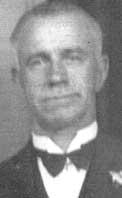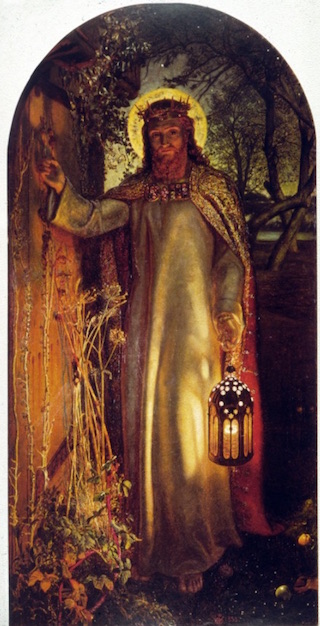William Carruthers Davidson

Memoir by his grandsons Dally Messenger III,
Ken J. Messenger, and Gary Davidson (dated from July 3, 2002)
(Thanks to Jeannie Egan and Wikitree )
W. C. Davidson was born in 1877 in Glasgow Scotland. When he was seven (1884) he migrated to Australia with his parents, George Davidson and Helen Lauder (his death certificate says he was seventeen). In 1903, at the age of 26 he married Amy Earle. The couple had two children, Allan and Amy. I remember Allan used to often visit his father in Katoomba. I never met Amy his daughter.
His wife Amy died - circumstances not known as this is written. At the age of 36 (1913) he married our grandmother, Catherine Maud Doyle. The couple had four children, Maxwell, Dorothy (our mother), Joan, and William Jnr (Gary's father). He died on November 17, 1963 at a nursing home at Bundeena where he spent his last days. He is buried in the Presbyterian section of Woronora cemetery.
William Carruthers was not highly regarded by his family mainly because he got drunk every Saturday night and had autocratic ways.
But to me as a child aged 8 to 14 he was a decisive influence and one of the most wonderful people in my life. I was sent in my primary years - Grades 4 and 5 in a boarding school of exceptional sadism and catholic cruelty - Clairveaux, Katoomba, NSW, Australia, the Junior School of St Bernard's College. The most sadistic De La Salle Brother was Brother Malachi, who demanded that my grandfather, who had a bad leg, pick me up at weekends.

Painting: I am the Light of the World by Holman Hunt
When I was young my grandfather would often call me aside and tell me about how he had seen the masterpiece by Holman Hunt.
He would describe how he looked at the painting in wonderment, especially the way the lamp in the painting lit up the surrounds and the figure of Jesus. He would tell me how it actually felt like he was looking at a real lamp immersed in the painting.
I had to imagine this painting in my mind's eye until in 2002, over sixty years later, I visited Oxford University in the UK for the first time. I was directed to Keble College - and there before me was the masterpiece, unguarded, protected only by a glass partition. Hunt took eight years to finish the painting which he completed in 1853.
My grandfather would walk the four miles to the Clarivaux College (the boarding and primary school of St Bernard's College) to pick me up. He refused to catch the bus because of the money for the fares. When the sadist Bro Malachi saw him coming he would send me out to meet him. How I longed to escape that place and how wonderful of the old man to walk all that way to make sure I got out.
He talked to me about the Great Depression, the Railways, The Unions, the Labor Party. He hated the capitalist classes. He would listen to Federal Parliament on the Radio and especially cheered on Eddie Ward, the member for East Sydney who socked it to the monied classes and never let up on how they oppressed the working classes.
He was an inveterate letter writer to the local paper. He became exceptionally abusive when the bus companies put up the price of the bus fare from Leura to Katoomba (by a penny) or when the price of beer went up.
He was stone cold sober during the week. but on Saturdays (my brother Ken remembers Fridays) nothing could dissuade him from getting dressed up in suit, tie and hat, shined shoes and all — and going to the pub from whence he came home totally drunk. On the down hill path to the house he once fell over on his head and landed upside down - straight as could be, his hat in the dirt and his feet in the air. My grandmother was shrieking in fear that he had injured himself, but he was perfectly all right and so drunk he had no idea he was upside down. He further annoyed my grandmother and his children by putting 3 to 4 teaspoons of sugar in his tea without stirring them.
On these nights he would sit up until the early hours, talking out loud of his experiences during the Depression on the Railways, when the jobs were divided by four (i.e.he received a quarter of a wage). The average person was caught up in a desperate struggle for basic survival.
He had strong views on entertainment. He loathed Bing Crosby ( a "Groaner") as representing everything which was decadent in modern youth. He could not understand how anyone could enjoy such colourless singing, when they could have listened to Harry Lauder, Gladys Moncrieff, Gilbert and Sullivan or Dame Nelllie Melba. He lamented the decline of vaudeville ( a little bit like standup comedy these days), which he recollected as real fun and entertainment.
He would often sing:-
"Make the ship lighter, the Captain roared,
chuck some of the passengers overboard."
and similar ditties.
He also quoted the classics (e.g Macauley)
Lars Porsena of Clusium
By the nine gods he swore,
That the great house of Tarquin
Will suffer wrong no more.
He would then tell us the story of how Horatius held the bridge in the brave days of old.
He was a teller of stories. He would describe the boa constrictor snake in fearsome detail. How it could drop from a tree, 30 feet long and a foot thick, wrap itself around a man and strangle him to death.
The Depression (1929-1939) and the War (WWII-1939-1945) had also made him extremely thrifty. I used to love walking with him. One day I recall him picking up a piece of paling with an old nail in it. It went into the sugar bag he always carried with him. The wood was saved for the fire heap and the nail was carefully extracted, straightened out on the anvil with the hammer, dipped in sump oil and preserved in the appropriately sized jar.
This was the the late forties, Post Depression, post War. Nothing was ever thrown out.
From Gary Davidson,
grandson of William Carruthers Davidson, (son of William Lauder D.)
As the eldest son of William Lauder Jnr my earliest childhood recollection is the visits to Leura - probably in the mid 50s. I trekked up the Blue Mountains with my Dad. I have fond memories of that period and of the visits to my grandparentes — but have no recollection of the Saturday night trips to the pub!
Several years later, after our grandmother's death, my grandfather came to live with us (must have been around 1959) at Terry Hills. Dad had to build an extra room at the back of the garage. In a small house and garage we had a family of eight, plus granddad. He probably didn’t like it at Terry Hills, as we had no pub or club — and that may go some way to explaining his behaviour. At this stage of his life I found him to be a bitter man who continually chastised us kids for our behaviour - we could do nothing right so we avoided him as much as possible.
Personally, I was pleased when Dad found him a place in the Nursing home at Bundeena. There may be a strong probability that he was suffering some dementia at this time of life. His legacy to me was that I got his room at the back of the garage which was the biggest in the house. Thank you William Curruthers Davidson.
Ken Messenger's note:
Max also put Pop in an outside flat at some stage. I saw the unit in his back yard recently.
Mum (Dorothy) and her husband John Duncan also visited and stayed in the same unit from time to time.
